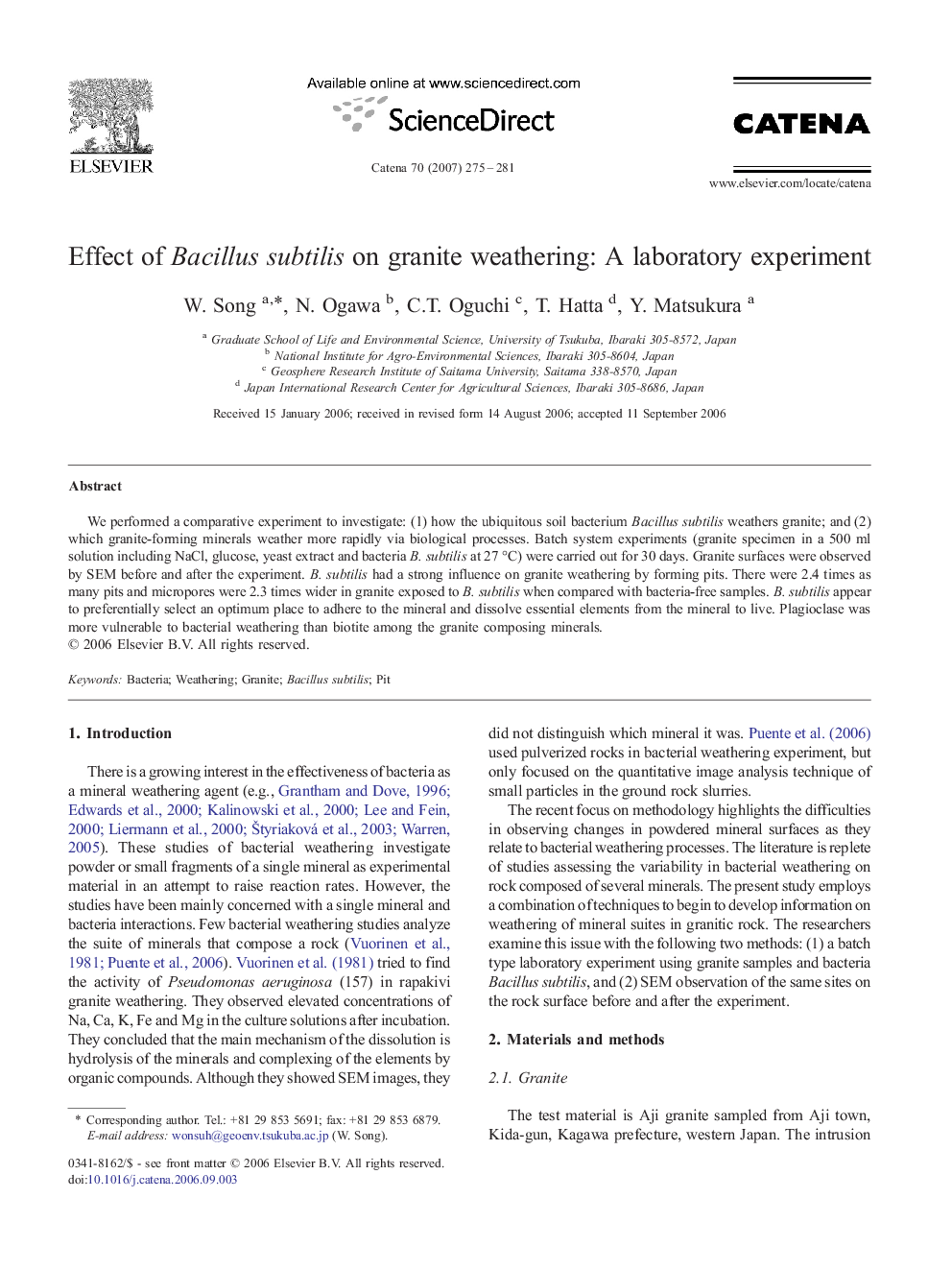| Article ID | Journal | Published Year | Pages | File Type |
|---|---|---|---|---|
| 4572474 | CATENA | 2007 | 7 Pages |
We performed a comparative experiment to investigate: (1) how the ubiquitous soil bacterium Bacillus subtilis weathers granite; and (2) which granite-forming minerals weather more rapidly via biological processes. Batch system experiments (granite specimen in a 500 ml solution including NaCl, glucose, yeast extract and bacteria B. subtilis at 27 °C) were carried out for 30 days. Granite surfaces were observed by SEM before and after the experiment. B. subtilis had a strong influence on granite weathering by forming pits. There were 2.4 times as many pits and micropores were 2.3 times wider in granite exposed to B. subtilis when compared with bacteria-free samples. B. subtilis appear to preferentially select an optimum place to adhere to the mineral and dissolve essential elements from the mineral to live. Plagioclase was more vulnerable to bacterial weathering than biotite among the granite composing minerals.
